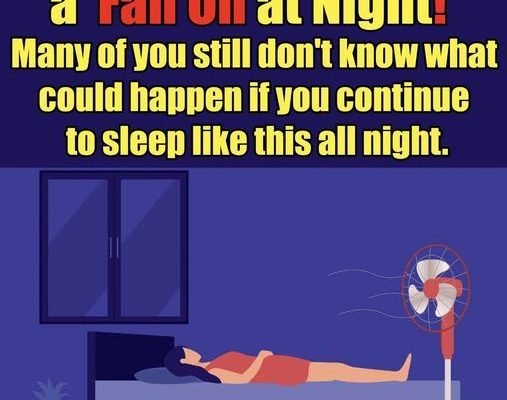Fans are often considered a simple and effective solution for staying cool during warm nights. However, despite their popularity, using a fan at night can sometimes disrupt your sleep. While fans offer benefits like improved airflow and white noise, they also come with potential downsides that might interfere with restful slumber. Here’s what you need to know.
1. Noise Interference
- What Happens : Even though fans produce soothing white noise, some people find the hum or oscillating sound distracting, especially if the fan is too loud or uneven.
- Why It Matters : Excessive noise can make it harder to fall asleep or stay in deep sleep stages. If the fan has irregular vibrations or mechanical sounds, it could further disturb light sleepers.
2. Dry Air and Irritation
- What Happens : Fans circulate air but don’t add moisture back into the room. This can lead to dry air, which may irritate sensitive areas like your throat, nose, or eyes.
- Why It Matters : A dry throat or nasal passages can cause discomfort, leading to frequent awakenings or difficulty breathing comfortably through the night.
3. Temperature Fluctuations
- What Happens : While fans help regulate body temperature by promoting sweat evaporation, they can create inconsistent cooling effects depending on how directly the airflow hits you.
- Why It Matters : Sudden changes in perceived temperature (too cool or drafty) can wake you up or prevent you from entering deeper stages of sleep.
4. Dust Circulation
- What Happens : Fans stir up dust particles, pet dander, and allergens from surfaces around the room.
- Why It Matters : For individuals with allergies or respiratory sensitivities, this increased exposure to airborne irritants can trigger sneezing, coughing, or congestion, disrupting sleep quality.
5. Psychological Dependency
- What Happens : Some people become dependent on the presence of a fan for falling asleep, making it difficult to adjust when traveling or in situations where a fan isn’t available.
- Why It Matters : Over-reliance on external factors like a fan can weaken your natural ability to relax and fall asleep without assistance.
Tips to Minimize Disruptions
If you rely on a fan for better sleep but want to reduce its negative impacts, try these strategies:
- Choose a Quiet Model : Invest in a low-noise or adjustable-speed fan to minimize auditory disturbances.
- Maintain Humidity Levels : Use a humidifier alongside your fan to counteract dryness and keep air comfortable.
- Position Strategically : Place the fan so it doesn’t blow directly onto your body, reducing the risk of chills or irritation.
- Clean Regularly : Wipe down your fan blades weekly to prevent circulating dust and allergens.
- Combine with Other Cooling Methods : Pair fans with breathable bedding or air conditioning for balanced comfort.
Final Thoughts
While fans provide relief from heat and humidity, their use at night can occasionally disrupt sleep due to noise, dryness, or other factors. By understanding these potential issues and taking proactive steps, you can enjoy the cooling benefits of a fan while maintaining peaceful, uninterrupted rest. Sweet dreams! 🌙



